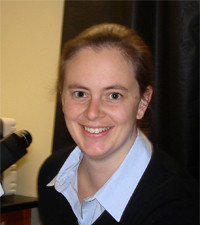Plasmonic materials are highly promising photoredox catalysts for driving energetically unfavorable chemical reactions with light, due to their large optical cross sections and ability to generate a number of hot holes and electrons. However, the efficiencies of most plasmon-driven processes are quite low, likely due to the lack of mechanistic understanding of the underlying physical processes. Plasmons can concentrate electromagnetic fields, can generate highly energetic electrons and holes, and can heat up local environments. An understanding of the energy partitioning into each of these processes is crucial to the design of plasmonic photocatalysts which are optimized for chemical selectivity. Here I’ll discuss our development of ultrafast surface-enhanced Raman spectroscopy (SERS) to probe the behavior of molecules in plasmonic hot spots. By probing on the relevant timescales, we are able to uncover how and when the plasmon energy is converted into hot carriers, molecular heating, or resonant energy transfer. We use a new form of ultrafast Raman thermometry to probe energy transferred into adsorbed molecules as heat, showing that the plasmon-induced heating contribution to catalysis is negligible. Additionally, we probe hot carrier transfer events and use SERS substrates with tunable electromagnetic field enhancements to examine the effects of local fields on chemical reactivity. These results quantitatively determine the energy partitioning of plasmon decay, and highlight the unique ability of these plasmonic materials to drive energetically unfavorable chemical reactions.



